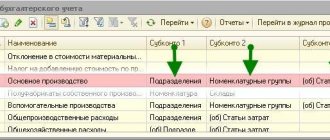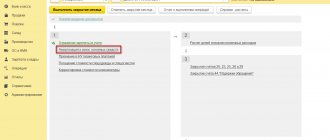Content:
We take into account the costs of creating a website.
The website is an intangible asset.
We determine the initial cost of the site.
Letter of the law. When the exclusive right can pass to the employee.
We calculate the amount of depreciation of the site.
Register the domain name of the site.
If the site cannot be classified as an intangible asset.
Note. Since 2008, the concept of non-exclusive rights has not been used.
Costs of hosting and promoting the site.
We take into account the costs of creating a website
Today, many companies open websites on the Internet. Let's see what expenses an organization can take into account for these purposes when calculating income tax.
One or a set of several Internet pages related by a common topic and located at a specific address on the Internet is nothing more than a website. The site can contain text materials, photographs, price lists, graphic images, as well as databases, programs, etc.
As a rule, on the website, the company indicates basic information about itself, provides contact information (telephone numbers and locations of offices or stores, surname, first name and patronymic of specialists or managers, their email addresses), a list of activities (name of works and services, assortment goods), messages about ongoing promotions and discounts.
A company can conduct business directly through a website on the Internet, that is, trade through online stores.
The tax accounting procedure for the costs of developing and maintaining an Internet site depends on whether the created object is recognized as an intangible asset.
Grouping expenses
When generating expenses for ordinary activities in accounting in accordance with paragraph 8 of PBU 10/99, their grouping must be ensured by the following elements:
- material costs;
- labor costs;
- contributions for social needs;
- depreciation;
- other costs.
For management purposes, accounting organizes the accounting of expenses by cost items, while the list of cost items is established by the organization independently.
For tax accounting purposes, expenses associated with production and (or) sales are divided into:
- for material expenses;
- labor costs;
- the amount of accrued depreciation;
- other expenses.
In addition, production and sales costs incurred in the reporting period are divided into direct costs and indirect costs. The procedure for determining direct and indirect costs is given in Article 318 of the Tax Code of the Russian Federation.
Having examined the classification of expenses for accounting purposes and for profit tax purposes, we will note that in accounting, contributions for social needs as part of expenses for ordinary activities are allocated to a separate group. In tax accounting, contributions for social needs are not allocated to a separate group and, since they are not included in labor costs, they are included in other expenses associated with production and sales.
The website is an intangible asset
For profit tax purposes, an Internet site can be classified as an intangible asset if it meets the requirements established in paragraph 1 of Article 256 and paragraph 3 of Article 257 of the Tax Code:
— the organization owns exclusive rights to the website;
— the site is used in the production of products, when performing work, providing services or for the management needs of the organization;
— the site is capable of bringing economic benefits (income) to the company;
— the site’s service life is over 12 months;
— the initial cost of the site is more than 20,000 rubles. (until January 1, 2008 - 10,000 rubles);
— the organization has properly executed documents confirming the existence of the intangible asset itself and (or) exclusive rights to it.
The fundamental difference between an intangible asset and other depreciable property is that the company has exclusive rights to it. From the point of view of civil law, an Internet site is a combination of two objects of copyright - a program that ensures its functioning, and a graphic solution (design).
A company can entrust the development of a website to employees who have an employment relationship with it, or to a third-party organization. If the creation of the website was carried out by one or more employees of the company and this was part of their responsibilities under the employment contract, it is considered that the company independently developed the website. In such a situation, exclusive rights to the site are assigned to the employer (unless otherwise provided in the employment or other agreement between the employer and the author), and copyrights are retained by the direct author (employee). This follows from Article 1295 of the Civil Code. Moreover, the author has the right to compensation.
An organization that has entrusted the creation of a website to a contractor is guided by the terms of the contract concluded with him, the subject of which is the development of an Internet site. In accordance with paragraph 1 of Article 1296 of the Civil Code of the Russian Federation, the exclusive right to a website (computer program or database) developed under such an agreement belongs to the customer. Of course, provided that the agreement between the contractor (performer) and the customer does not provide otherwise.
If, under an agreement to create a website, the contractor reserves exclusive rights to it, the customer organization does not have the right to classify the developed website as an intangible asset.
Other and non-operating expenses
Both accounting and tax accounting contain the concept of “non-operating expenses”. But in accounting, non-operating expenses, along with operating and emergency expenses, are classified as other expenses.
The list of operating expenses is given in paragraph 11 of PBU 10/99. In accordance with it, the operating expenses of an organization include expenses associated with the following types of activities of the organization that are not core for this organization:
- expenses associated with the provision for a fee for temporary use (temporary possession and use) of the organization’s assets;
- costs associated with the provision for a fee of rights arising from patents for inventions, industrial designs and other types of intellectual property;
- expenses associated with participation in the authorized capitals of other organizations;
- expenses associated with the sale, disposal and other write-off of fixed assets and other assets other than cash (except foreign currency), goods, products;
- interest paid by an organization for providing it with funds (credits, borrowings) for use;
- expenses related to payment for services provided by credit institutions;
- contributions to valuation reserves created in accordance with accounting rules (reserves for doubtful debts, for depreciation of investments in securities, etc.), as well as reserves created in connection with the recognition of contingent facts of economic activity;
- other operating expenses.
According to paragraph 12 of PBU 10/99, non-operating expenses of the organization include the following expenses of the organization:
- fines, penalties, penalties for violation of contract terms;
- compensation for losses caused by the organization;
- losses of previous years recognized in the reporting year;
- amounts of receivables for which the statute of limitations has expired, and other debts that are unrealistic for collection;
- exchange differences;
- the amount of asset depreciation;
- transfer of funds (contributions, payments, etc.) related to charitable activities, expenses for sporting events, recreation, entertainment, cultural and educational events and other similar events;
- other non-operating expenses.
Having analyzed the above lists of operating and non-operating expenses, we will see that they are open, therefore, other similar expenses of the organization may be included in the above-mentioned expenses.
The extraordinary expenses of an organization, based on clause 13 of PBU 10/99, reflect expenses that arise as a consequence of emergency economic circumstances (natural disasters, fires, accidents, nationalizations and other circumstances).
The list of non-operating expenses is given in Article 265 of the Tax Code of the Russian Federation. According to paragraph 1 of Article 265 of the Tax Code of the Russian Federation, non-operating expenses for profit tax purposes include reasonable costs for carrying out activities not directly related to production and (or) sales. Despite the fact that this list is quite extensive, it remains open, which means that any reasonable expenses of the organization that are not directly related to production and (or) sales will be included in non-operating expenses for profit tax purposes. At the same time, organizations should remember that any expenses are recognized as expenses, provided that they are incurred to carry out activities aimed at generating income.
We determine the initial cost of the site
Intangible assets are classified as depreciable property. Their cost is repaid by calculating depreciation (clause 1 of Article 256 of the Tax Code of the Russian Federation).
According to paragraph 3 of Article 257 of the Tax Code of the Russian Federation, the initial cost of a website is defined as the sum of expenses for its acquisition (creation) and bringing it to a state in which it is suitable for use. It does not include VAT and excise taxes.
The cost of a website developed by the organization’s employees is formed as the sum of the actual costs of its creation. These include, in particular:
— expenses for remuneration of workers directly involved in the creation of the site;
— patent fees, registration fees and other payments related to the execution and registration of exclusive rights;
— expenses for services of third parties;
- material costs;
- other similar costs.
The initial cost of the site is not increased by the amount of unified social tax and contributions for compulsory social insurance against accidents at work and occupational diseases, accrued from payments in favor of the workers who developed the site. The fact is that the specified tax and insurance premiums reduce the taxable profit of the current period as part of other expenses (subclauses 1 and 45 of clause 1 of Article 264 of the Tax Code of the Russian Federation, respectively). In addition, other taxes and fees taken into account in accordance with the Tax Code when calculating income tax are also not included in the cost of the site.
The initial cost of a website ordered to a contractor is formed from the amount paid for development and the costs of the customer organization for installing the resulting software package, debugging, testing, etc.
VAT
According to paragraph 1 of Art. 146 of the Tax Code of the Russian Federation, the object of taxation for the purposes of calculating VAT are transactions involving the sale of goods (work, services) in the territory of the Russian Federation, both on a paid and gratuitous basis.
Transactions involving the transfer of goods for advertising purposes are not exempt from taxation, with the exception of goods, the cost of acquiring (creating) a unit of which does not exceed 100 rubles. (Clause 25, Clause 3, Article 149 of the Tax Code of the Russian Federation). The amount of VAT presented by the supplier of such goods must be taken into account in the cost of such goods (Article 170 of the Tax Code of the Russian Federation). “Promotion” of a website on the Internet is carried out on the basis of a contract for the provision of paid services, therefore, if an organization fulfills its obligations as a VAT payer, it has every right to make a deduction for advertising expenses.
Amounts of VAT paid by taxpayers on goods (work, services) purchased to carry out transactions subject to VAT are subject to deduction after the goods (work, services) are accepted for accounting in the presence of an invoice from the supplier (performer) (clause 1, clause 2 of Art. 171, paragraph 1 of Article 172 of the Tax Code of the Russian Federation) in full.
Thus, we see that the legislator does not prevent the inclusion of expenses incurred in order to promote the site in the taxable income tax base in full, subject to certain conditions that we talked about today.
Letter of the law. When can an exclusive right pass to an employee?
The exclusive right to a work created within the scope of the employee’s job duties (official work) belongs to the author if the employer, within three years from the day the official work was placed at his disposal, does not perform one of the actions (Clause 2 of Art. 1295 Civil Code of the Russian Federation):
- will not start using this work;
- will not transfer the exclusive right to it to another person;
- will not inform the author about keeping the work secret.
We calculate the amount of depreciation of the site
To calculate depreciation of an intangible asset, it is necessary to determine its useful life. This is recognized as the period during which the object serves to fulfill the goals of the organization’s activities (clause 1 of Article 258 of the Tax Code of the Russian Federation). The taxpayer determines the useful life of an intangible asset independently on the date of its commissioning based on the validity period of the patent or certificate or the period of use of the object stipulated by the relevant agreements.
This means that if the contract for the development of an Internet site stipulates the expected useful life of its use, the organization, when calculating depreciation of the site, is guided by exactly this period.
Let’s say this period is not specified in the contract with the contractor, or the company developed the site on its own. Then she has the right to independently set the useful life of the site and consolidate it in the tax accounting policy.
If the useful life cannot be determined, then, according to paragraph 2 of Article 258 of the Tax Code of the Russian Federation, the object of intangible assets will have to be amortized over ten years, but not more than the period of activity of the taxpayer. Therefore, in order to avoid problems with justifying the useful life of the site, it is advisable to indicate this period in the contract with the developers or in the technical specifications drawn up for employees.
The organization begins to calculate depreciation from the 1st day of the month following the month in which the site was put into operation (clause 2 of Article 259 of the Tax Code of the Russian Federation). The date of commissioning of the site is the moment of its placement on the Internet. By this time, all work on creating, testing and setting up the site should be completed. The company independently calculates the amount of depreciation charges based on the initial cost of the site and its useful life.
Basics of accounting and tax accounting for website creation costs
When accounting for expenses directly related to the development of a website, it is necessary to rely on the norms of PBU 14/2007. The document regulates the features of recognizing an object as an intangible asset and approves the rules for reflecting it in accounting transactions. Registration is carried out at the original cost, to which the price of the purchased domain name is added. This recognition algorithm is also typical for tax accounting.
According to accounting standards, depreciation should be charged provided that the expected useful life of the resource can be reliably determined. The period allocated for useful use must be expressed in full months. If it cannot be identified, then depreciation charges will not be made in relation to a specific object (clause 23 of PBU 14/2007). In tax accounting, if it is impossible to fix the period of use of the site, the period according to the norms of clause 2 of Art. 258 of the Tax Code of the Russian Federation will be equal to 10 years. The Tax Code for software products provides a minimum time threshold for useful operation - 2 years.
BY THE WAY, the period of use of the asset must be regularly reviewed and, if necessary, adjusted. When operations to change the period of operation of the site, it is necessary to focus on maintaining the ability to obtain economic benefits from the resource.
Costs incurred by a business entity in connection with the acquisition or independent development of a website must be charged to account 08, detailed in subaccount 5. When the site is ready to launch, the final value of its cost is transferred by accounting entry to account 04. When calculating depreciation, account 05 will be used.
For tax accounting, the rule for recognizing an object as an intangible asset differs from the accounting method. The Tax Code classifies websites as intangible assets and depreciable assets if their value exceeds 100 thousand rubles. In accounting, the minimum threshold is set at 40 thousand rubles. Commissioning according to credentials corresponds to the day the site was posted on the Internet.
The costs of purchasing a domain name can be reflected in accounting in different ways:
- If initial registration occurs, the amounts spent increase the initial cost of the asset. The name of the site cannot bring economic benefit to the enterprise, so it cannot be reflected in accounting as an independent asset.
- If there is a need to re-register a domain name, these costs are taken into account in account 97, subject to gradual debiting of funds during the period for which the rights to use the domain were registered.
The accountant reflects the payment of bills for the allocation of space on the server (hosting) and the provision of technical support services as expenses for ordinary activities. Tax accounting involves classifying them as other expenses. If the purpose of the site is to advertise the company, then the costs of creating the resource and its promotion should be written off as advertising costs (if the resource is not recognized as an intangible asset).
In website modernization situations, costs can be reflected in several ways. Modernization activities can be adaptive or represent a full range of actions. In the first case, minor adjustments are made to the program code necessary to maintain the functionality of the resource. With a complete modernization, a new modification of the software product is created. It must be separated as a separate asset. Costs incurred by an enterprise in the process of creating a website on its own do not fall into the category of objects of VAT taxation (Article 146 of the Tax Code of the Russian Federation).
Registering a website domain name
After completing the creation of the site, you must assign it a domain name and register it in the prescribed manner.
The domain name of a site is its unique name and address on the Internet (for example, the website of the Russian Tax Courier magazine is www. rnk. ru). The domain name is registered to ensure its uniqueness at the Russian Research Institute for the Development of Public Networks (RosNIIROS) or with registrars authorized by it. Services for registering a domain name are considered provided from the moment the information is entered into the domain name register.
The website domain name is not recognized as an independent intangible asset, since it is not the result of intellectual activity. But if the site is accounted for as an intangible asset, the costs of the initial registration of its domain name are included in the initial cost of the site (clause 3 of Article 257 of the Tax Code of the Russian Federation). After all, the initial cost of an intangible asset is defined as the amount of expenses not only for its acquisition or creation, but also for bringing it to a state in which it is suitable for use. Without registering a domain name, a website cannot function.
Primary means the registration of a domain name, carried out when creating a website. Typically it is valid for one year. Subsequently, the domain name must be re-registered annually. It does not lead to changes in the quality characteristics of the website and does not affect its initial cost.
The costs of renewing registration are included in other expenses associated with production and sales (subclause 49, clause 1, article 264 of the Tax Code of the Russian Federation). They are taken into account gradually during the validity period of the domain name registration specified in the relevant agreement (Clause 1 of Article 272 of the Tax Code of the Russian Federation). If the registration period is not specified in the contract, the organization distributes the costs independently.
Example 1
CJSC Fragment decided to place its own website on the Internet. The organization entrusted the development of the website to its specialists working under employment contracts. The work was carried out from February to March 2008. In April 2008, the company's website was posted on the Internet. The costs for creating the site were:
— programmers’ salary — 80,000 rubles;
— UST, insurance contributions to the Pension Fund and for injuries from the salaries of programmers — 20,960 rubles;
— depreciation of computers and other fixed assets that were used in the development of the site — 3,900 rubles;
— design layout of the website performed by a third party — 23,600 rubles, including VAT 3,600 rubles;
— initial registration of a website domain name — 2006 rubles, including VAT 306 rubles.
Exclusive rights to the site belong to CJSC Fragment, since the organization independently developed the site and the employment contracts with the employees involved did not provide for a special procedure for the transfer of these rights. In addition, the created site meets the requirements for intangible assets. Therefore, the company takes into account the developed website as part of intangible assets. The organization established its useful life as a general rule - ten years (120 months).
The initial cost of the site in tax accounting is 105,600 rubles. (80,000 rub. + 3,900 rub. + (23,600 rub. - 3,600 rub.) + (2,006 rub. - 306 rub.)). Amounts of unified social tax, insurance contributions to the Pension Fund and for injuries from programmers' salaries are not included in the initial cost of the site. They relate to other expenses associated with production and sales, and reduce the taxable profit of current periods.
Since the site was posted on the Internet in April 2008, JSC Fragment begins to accrue its depreciation in May. The amount of monthly depreciation recognized for profit tax purposes is 880 rubles. (RUB 105,600: 120 months).
Which expenses reduce income tax and which do not?
Expenses reduce the tax base for income tax; accordingly, the more expenses we can take into account, the less the amount of tax payable will be.
From here it follows a logical conclusion that during audits, tax authorities will primarily check expenses: and if some part of them does not meet the requirements, such expenses will be excluded from the calculation, and the tax will be recalculated upward. What are these requirements?
We have talked about them more than once:
- Economic feasibility;
- Availability of supporting documentation;
- They must be related to generating income.
All three points are pretty clear until it comes to practice. Small companies have few problems with recognizing expenses; most often they involve the lack of supporting documentation or incorrect documentation. But a large business organization has a lot of questions about recognizing expenses. Situations can be very different; here, again, official explanations from relevant government agencies and a good accountant can help.
All these documents must meet the requirements of the legislative acts of the Russian Federation. If, for example, mandatory details are set for a cash receipt, then all of them must be on the cash receipt. If at least one of them is missing, then the tax authorities have the right to consider the document not properly executed and remove this expense.
Therefore, all primary forms you use, including those that you developed yourself, must also be approved as part of the accounting policy.
Expenses for this tax are recognized in the same way as income, using one of the methods: cash or accrual method.
For some expenses, standards have been established, that is, they are not accepted for taxation in full, but only in some part. This is relevant for entertainment, travel, advertising expenses, as well as expenses for creating certain reserves. Amounts of such expenses that exceed the standards are taken into account at the expense of profit after the tax has been calculated on it.
Above is one of the classifications of expenses - according to their inclusion (non-inclusion) in the calculation of income tax. But it is important to remember that costs must also be divided into direct and indirect.
That's all! All other costs associated with production and sales are indirect.
Why divide them?
To take it into account correctly when calculating tax: direct and indirect expenses have different recognition periods.
- Direct expenses form the expenses of the current period as products (works / services) are sold, in the cost of which they are included. That is, you incurred production costs for the product in the 1st quarter, but sold it only in the 2nd quarter: this means that you take these costs into account when calculating the tax based on the results of the six months, and not in the 1st quarter.
- Indirect costs are fully recognized in the current period. The same goes for non-operating expenses. When these expenses occurred, take them into account during this period.
If you classify expenses incorrectly, this will result in them being incorrectly allocated to periods. As a result, again, you will face tax recalculation, penalties and fines. To minimize this risk, close attention should be paid to the classification of expenses, their confirmation and justification.
Composition of material costs for the purposes of Ch. 25 of the Tax Code of the Russian Federation is open. In particular, the following expenses are recognized as material expenses (Article 254 of the Tax Code of the Russian Federation):
- for the purchase of raw materials and materials used in production;
- for the purchase of materials for packaging goods (including pre-sale preparation), for the maintenance, operation of fixed assets, etc.;
- for the purchase of tools, fixtures, inventory, and other property that is not depreciable;
- for the purchase of components, semi-finished products;
- for the purchase of fuel, water, energy of all types;
- for the purchase of third-party works and production services.
The organization determines the composition of material expenses independently and consolidates this list in its Accounting Policy for tax purposes.
For tax accounting purposes, material expenses can be classified as direct or indirect (Clause 1, Article 318 of the Tax Code of the Russian Federation). This depends on the characteristics of the taxpayer’s activities and the conditions of its Accounting Policy. Direct material costs when calculating profit tax reduce “profitable” income as goods are sold, the cost of which is taken into account (clause 2 of Article 318 of the Tax Code of the Russian Federation).
The moment at which material expenses are recognized in tax accounting using the accrual method is specified in clause 2 of Art. 272 of the Tax Code of the Russian Federation. It depends on the type of material costs. Thus, expenses for raw materials and materials attributable to manufactured goods are recognized as expenses on the date of transfer of such raw materials and materials into production, and for work or services of a production nature, the date of recognition of material expenses is the date of signing the service acceptance certificate.
Under the cash method, in order to recognize material expenses in addition to the release of materials into production or the signing of an act, it is necessary that such expenses be paid in any way (monetary or non-monetary) (clause 3 of Article 273 of the Tax Code of the Russian Federation).
Aren't mistakes in the declaration not in one's favor punishable? No, underestimation of tax is punishable, but overestimation will occur here
I will submit the declaration, but where should I include the expenses? Leave them where you have them now.
By proxy. No need to register)
I believe that you need to show what is, and not what the inspectors want to see
These requests are, at a minimum, ILLEGAL! and you don’t need to allow yourself to be treated in such a way that the tax authorities still have the courage to ask you to remove the loss
After all, this is a commercial activity and there are ups and downs, and even more so in a crisis, let them decide their own issues, and not at the expense of us
for the second year, and even the third, I show losses, I always justify them, I write letters to them upon request, as many as 3 pages, there is always a justification, and all efforts, they say, are aimed at generating income and covering losses, because contracts are concluded and etc., the letters are received, they calm down until the next quarter, and there’s nothing to complain about, everything is justified!
at their first request, the manager clearly answered that how can we remove the loss for the last quarter, when it has already been formed, we, they say, are not Sharazhka’s office, we will, they say, try to cover the loss in the coming periods, etc. and indeed, the company has a staff and accounting department. Why stir something up out of the blue?
It’s they who take words, and when the opportunity arises, they then use it
you need to clearly defend your position, say everything correctly, otherwise they don’t like the loss now, and then the profit will be small
and in general, how you look at it yourself: today you have REASONABLE expenses, no income - loss, tomorrow the same, the day after tomorrow - the same. The tax inspector will say, oh, how good, they say, I’ve handed over decent reports to my superiors, and you can go on vacation. but in a year or two, excuse me, the profit will be gone!
What the dealer will ask is, of course, to reduce it, i.e. add costs. Of course, if you wish, you can agree and spend these same costs. but these may already be disputed expenses. Well, okay, we spent it, paid how much money the dealer allocated for the tax, and calmed down. and then the on-site inspection will arrive in time. what will she do in the first place, of course, “throw out” your expenses from the calculation of profit, they say they are not economically justified, and even the counterparties are incomprehensible, etc. and so on.
the manager just needs to understand that this is the state apparatus and they won’t pat you on the head, and other specialists will come to check, not the ones who asked to remove the loss, it is useless to hope for mercy, unless, of course, there is an acquaintance
and the fact that he was called to the tax office, then this is just a PROCESS prescribed by law, they are obliged to do this, they must show the appearance of their “work”, so nothing terrible happens a couple more times, or maybe not. After all, if the accounting department is white, as they say, what are they afraid of? and if you “put your face in a gun”, and at the same time listen to all their instructions, then you will then get tired of following their lead
there is no need to be afraid of these “threats” - they are UNOFFICIALLY asking everyone, let them write everything on paper, there is nothing terrible in this, this is not an isolated case
the director needs to understand that the tax authorities are only doing their job, and you need to do your job, not theirs, because they obviously won’t do anything for you. all their actions are aimed at the most fearful people, there is no need to create panic because of this, on the contrary, you need to carefully think through every step
I wish everyone good luck.
It’s easier for me to show it this way. I'm not registered there. Responsibilities for maintaining the book rest with the director.
What is the problem then? If the director doesn’t want problems with the tax authorities, why bother with losses? Well, set it to non-taxable for tax purposes and that’s it. And what does accounting policy have to do with it? You didn’t like the way the documents were formatted, so they didn’t subject you to taxation.







